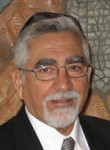
In a small country where nearly 75 percent of its Jewish citizenry was murdered by the Nazis during World War II, this is a particularly disturbing phenomenon.
Perhaps the most serious display of anti-Jewish, anti-Israel hate occurred less than a month ago, when fans of the Israel soccer club Maccabi Tel Aviv endured vicious hit-and run-attacks after a match in Amsterdam by bands of mostly Arab and Muslim hoodlums, simply for being Jewish or Israeli. The attacks resulted in a few dozen injuries, including the hospitalization of several Israelis.
Some say that “history is repeating itself.” Others are calling the attack a “pogrom,” an emotions-laden term and grim reminder of the ugly, deadly riots against Jews and other religious and ethnic groups in the 19th and 20th centuries. It has also been called “the first organized violence against Jews in the Netherlands since the Nazi occupation.”
The November 7 violence and other recent events are tarnishing the image of religious and ethnic tolerance the Dutch have traditionally, and well-deservedly, enjoyed for centuries.
The events are particularly affecting the sensitivity and uneasiness of the Dutch Jewish community. So much that, as the Times of Israel reports, an unprecedented number of Dutch Jews are contemplating making Aliyah — leaving their homes for the Jewish homeland.

One of those Dutch Jews expressing concern is a relative who lives in the Netherlands, Femmetje de Wind.
Femmetje is a prolific author, journalist and columnist, an accomplished lawyer, a wife and, above all, the devoted mother of two young daughters.
It is especially in the latter role — that of a mother — that Femmetje looks with apprehension at the future of Dutch Jews in the Netherlands.
While she has never felt the need in the past to warn her children about Jodenhaat (hate against Jews), Femmetje now realizes that they are discovering it themselves. Her oldest daughter received threatening remarks after writing about the October 7, 2023, Hamas massacre and its consequences.
But Femmetje knows the most and the ugliest about Jodenhaat from her own family’s past.
During the Holocaust, her father narrowly escaped being sent to his death at a Nazi concentration camp.
In a powerful column, “From Scapegoat to Zionist,” at the Dutch Newspaper Het Financieele Dagblad, Femmetje writes about her father and the horrors experienced by his Jewish family during the Holocaust.
“My father was 18 when the Second World War broke out. He came from a large Jewish family in Amsterdam,” she writes. “You can hardly imagine it when you see photos of this family, but within a few years there were only a few people left. The rest disappeared into the gas chambers of Nazi Germany. I only know them from photos and stories: Aunt Esther baked the best butter cake; Uncle Levi played the violin fantastically and my grandfather was the best tailor.”
A trusted, comprehensive genealogy of the Levy-de Wind family in fact conveys an even more haunting reality.
The recorded place of death of more than one hundred de Winds or direct de Wind relatives is that of a dreaded Nazi death camp. Sinister names such as Auschwitz, Sobibor, Bergen Belsen, Ravensbrück are nauseously repeated in the genealogy. Sometimes the place of death is an ominous “[ergens in] Midden-Europa” (somewhere in Central Europe).
The names of these relatives –– a significant portion of two or three Levy-de Wind generations — are now among the 102,000 names of Dutch victims of the Holocaust inscribed on an equal number of bricks forming the Namenmonument — the Dutch Holocaust Memorial of Names — in Amsterdam, the same city where today so many antisemitic demonstrations are taking place.
While as a child Femmetje never experienced antisemitism or Jodenhaat, she senses ominous changes recently.
An ardent and frequent spokesperson against all forms of antisemitism, she has already experienced insults and hateful remarks herself.
After she wrote a column condemning the heinous October 7 (2023) Hamas attack, she received hate mail, some of it calling her a “Zionist whore.” It was then, as Femmetje writes, that “antisemitism entered [her] living room.”
Since then, she has experienced a sense of insecurity and foreboding when attending Jewish commemorative events that are often the subject of intimidating, antisemitic demonstrations.
It culminated the night of November 7-8 when Femmetje drove to the headquarters of the Maccabi soccer team in Amsterdam after she heard that Israeli Maccabi fans “were being hunted, followed, threatened and beaten up.”
As she writes in her column, Femmetje “saw the first victims coming in. Big, strong boys who were shaking like leaves, not daring to go anywhere…. the perpetrators, who spoke Arabic, did not even bother to use veiled terms such as ‘Zionist’. ‘Yahud’ and ‘We’re going on a Jew hunt’, they shouted in videos that went viral. The genie was out of the bottle.”
Femmetje de Wind’s powerful, emotive “Van Zondebok tot Zionist” (“From Scapegoat to Zionist”) is a warning not only against all forms of antisemitism (“yes, but antisemitism,” “look-the other-way antisemitism,” “Zionism antisemitism”) but against all forms of hate and prejudice.
It is also a warning that the Jewish community “has had enough” and it is high time for Dutch authorities to play a stronger hand in dealing with the burgeoning antisemitism.
Femmetje concludes her essay with the words “We have been living in a dream for too long, including me as a second-generation Holocaust victim. It was a pleasant dream, but now it is time to wake up.”
Please read Femmetje de Win’d essay in its entirety here, letting Google translate for you.
CODA:
Femmetje de Wind is the author of numerous books and articles. Several of her books, including Rivka, Het Beloofde Leven (The Promised Life), Door Hun Ogen (Through Their Eyes), and Hij Noemde Me Elly (He Called Me Elly), brilliantly and candidly address the Holocaust, its victims and survivors and Jewish traditions and issues.
*
Dorian de Wind is the military affairs editor of The Moderate Voice website, with which San Diego Jewish World trades stories under the auspices of the San Diego Online News Association.